- Home
- Tanya Anne Crosby
Once Upon a Knight Page 11
Once Upon a Knight Read online
Page 11
If only Rhiannon would settle the fire in her heart and try to remember…
The dream arrived like a breeze…
Rhiannon was sobbing. She was three years old and weeping inconsolably because she hadn’t the words to tell anyone what was wrong. All about her, servants hustled, some carrying platters, others bearing ewers. And still others prepared the trestle tables and moved long, noisy benches.
Her sister had to carry her, but Rhiannon was far too heavy, and Elspeth set her down amidst the rushes, patting a hand atop her head, and saying words Rhiannon couldn’t comprehend, though she certainly understood the love. Only now Rhiannon refused to look at her, because not even Elspeth seemed to understand Rhiannon. There were too many thoughts flying about her head—pictures without words. Her dress was too tight in places, and her head felt like bugs crawled inside her skull. Squealing with displeasure, she slapped her ears vengefully, trying to get out the bugs, and then, when she couldn’t seem to do it, she shrieked at the top of her lungs—so loudly that the servants all stopped to stare. She curled into a ball, precisely the way she’d lain in her mother’s womb—but even then, there hadn’t been any reassurance. Her twin sister was dying—dying! Once again, Rhiannon felt the waning heartbeat, the light in her soul going dim. She hadn’t even a name, but there in the womb, floating in water, she had reached out to tangle her fingers into the fine threads of her twin’s hair.
Don’t die! She bade her, don’t die! But even as she tried desperately to share her own life force, the light grew dimmer, and dimmer, and dimmer… until finally, it guttered and extinguished.
“God’s teeth, girl! Where’s your mother?” Henry was shouting at Elspeth as Rhiannon tucked her knees to her chest, rocking back and forth.
“I… don’t… know.”
“Christ! She left you with no one to care for you?”
“Aye,” said Elspeth. “But, don’t worry, she said she would return anon.”
“Where is Seren?”
“In her crib.”
“By the bloody saints, the dinner hour is no time for children to flounce about the hall. What in God’s name ails your sister?”
Elspeth shook her head, her blue eyes filling with tears. “I think she’s hungry.”
“Stay here,” her father demanded, but then he lifted up Rhiannon and marched across the hall, shouting at the top of his lungs. “Someone, for the love of God, please see to this child!”
Rhiannon awoke, blinking away an image of a pair of desperate brown eyes peering into her face. The eyes were narrowed, but not angry. For a disconcerting instant, she was light enough to be wafted into the air, and momentarily disoriented as the memory vanished, dissipating into thin air.
This is now; that was then.
She lay in the bed she shared with her sisters at Llanthony, not in London. Elspeth was not four, and she was not two. Her twin sister—the first set of twins her mother carried—was twenty-two years dead, her life force extinguished long before she’d taken a single breath. Sadness enveloped her, and a loneliness that not even her living sisters could assuage.
And nevertheless, just like that time, once again, Morwen had been summoned and soon enough she would arrive like an ill wind.
Sleeping peacefully, her sisters were huddled together, one less than before, and although Rhiannon couldn’t see Elspeth, she felt her sister’s loneliness as acutely as she felt her own. Instinctively, she knew that her sister must be calling for her, but Rhiannon was powerless to answer. Outside, tonight, there was a waning moon lending its light.
Inside the cottage, it was cold enough to show her chilled breath. She exhaled a puff of frozen air and swirled her finger through the mist, watching quietly as shapes coalesced.
A man and woman… sleeping peacefully on a pallet… under the moonlight.
The smaller form was huddled beneath a mountain of wool and velvet and fur. The man lay beside her, perfectly still… without blankets.
Rhiannon sighed. Alas, she was too far away. She could not speak to Elspeth, nor could she interfere, no matter what transpired. It was some terrible form of torture that would compel her look when she could see all but do nothing. It was for this very reason she had refrained from showing Seren, Rose and Arwyn.
She puffed away the image, and reached up one more time, swirling a finger through the thin veil that had yet to dissipate, and once again, shapes took form, only this time settling into the image of a long and winding road… the king’s road from London.
Two dark figures on horseback, one man, dressed in black… and a woman, with a cold wind blowing at her back. This would be Morwen.
Her mother was on the way.
Vengeance is in my heart,
death in my hand,
blood and revenge are hammering in my head.
—William Shakespeare
It’s not always about a man.
I am Morwen, only-born daughter to the regnant dewine priestess, born to be seneschal of Wales. Conceived by the Beltane fires, I should have been preordained, but my own mother gave my legacy to my unborn babes. In truth, for that offense alone, I would have ripped my own belly and dragged them out to strangle them with my bare hands; consider what I would do to a child not my own. In this world, there are no true kings. There were never any kings. And no man ever ruled save by the grace of a woman. And therefore, some may think otherwise, but this has naught to do with Henry or Stephen. It is about a haughty little child by the name of Matilda. It is about her unbridled arrogance and the way she swept through her father’s halls, crooking her little finger in defiance. It is about a spoiled child-bride who’d resented her papa’s paramour so deeply that she’d determined to undermine him at every turn. And even after Henry banished that little shrew from England, wedding her to a whey-faced emissary of the Church, she grew worse, persecuting me from afar, with greater and greater power, thanks to the greed of her sire and the backing of the Church.
But it isn’t enough that I gave my own mother to be judged by these cretins—a sacrifice for their altar. She would tirelessly campaign against a “faith” she so imperiously presumes to be evil, when all the while what she truly desires is to destroy me. Her meddling cost me everything—never mind my own mother and thankless daughters. It cost me the only man I’ve ever loved… Emrys, dead, by my own hands. And the irony is lost to all, for his druid name meant life immortal.
And now he is gone, and despite that it breaks every tenet I am bound to, I will show that wretched woman the true face of evil.
One day soon, Henry’s high and mighty Empress daughter will discover what it means to anger a Daughter of Avalon. That bitch thinks herself better than me, but she has no more than a sharp tongue to defend her, whilst I have the blood of my ancestors and a fury unlike any she will ever encounter. Only once she’s spent an adequate amount of time groveling on her knees, and only after she’s crawled from baron to baron, begging entry at every once-held fief, only then will I squash her life—but not before she understands her folly, and not until she learns that I am the reason her children will never sit on her father’s throne. In the end, I give not one whit who wears her father’s crown, only that whoever wears it serves me well.
For much of the journey from London, the king’s road remains clear of woodlands—mostly to discourage brigands—but as the road begins to narrow, the trees huddle closer and darkness enfolds me. I breathe a lungful of relief.
Tonight, the night air is thick and damp. It is the time of year when the soil holds enough warmth that mist rises naturally from the road, unfurling before me like a lady’s veil, teasing the way.
Opting for privacy and making all due haste, I travel light this evening, riding, not sidesaddle as most genteel ladies might feel compelled to do, but legs astride, like the warrior queen of the late Iceni tribe. This is how I see myself, and, this is how others will see me so long as I have breath and life. No matter how wrinkled I may grow beneath my spell of glamour, I will ride tall a
nd proud in my saddle, with my velvet cloak flying at my back like the wings of a vengeful angel.
And can you guess what pleases me most? This: Rather than employ an entourage and carry a portmanteau filled with jewels and gowns and maquillage to maintain my youthful visage—as Matilda must certainly do—I need only carry my scrying stone and my mother’s grimoire.
Mine now. All mine. Keep a hundred thousand crowns if it be your wish, little darling! None of your gem-studded tiaras will ever come close to the worth of my heirlooms.
Mothers and daughters, daughters and mothers; so much toil and trouble. But whoever said blood is thicker than water is a fool. Not even the simple fact that my five comely brats were wrenched, screaming from my womb, can make me feel aught but fury over them. How it galls me even now to hear the fruit of my own loins described as beauteous! Unparalleled! As though I, myself, am not also gifted with the prophet Taliesin’s blood. Like Matilda, my own children are ungrateful brats, and why shouldn’t they be? They all share the same blood—save for Rhiannon.
Rhiannon, oh, Rhiannon, you could have filled my heart.
Alas, my dearest daughter, there can be only one high priestess, and it will forever be me.
It has been years now since I last returned to Wales, but I know these woodlands well. Instinctively, I sense that Bran has flown ahead, certain in the knowledge that I do not need him. Still, I cast my head back to peer at the waning moon—a glowing orb that pulses in time to the beat of my own heart. Ah, yes! It is a lovely night for blood magic…
The night is still young.
Fueled by vengeance alone, I would sweep through these lands like a black and terrible flame, but tonight I have more pressing matters to contend with before facing my wayward daughters. It is such a costly thing to keep my glamour, and the price of allowing it to fade is too dear. But soon enough, dear ones, you will learn what it means to defy your lady mother—Elspeth most of all.
Like a hound on the hind of a kill, I catch the scent of blood. “Ride ahead,” I say to my companion. “I will require immediate sustenance.”
“A bath, m’dame?”
“Aye. Fresh, please. I cannot abide the stench of old blood.”
“Aye, m’dame,” he says, and breaks away, putting his shining silver spurs to his horse’s flank, and I think to myself: What a good servant, he is… and why shouldn’t he be? He enjoys the benefits of my Craft, and rides so spryly for a man so close to ninety. Alas, should he ever decide to defy me, he would be dead on the morrow, for he is the vessel that harbors my blood sins. His body might be beautiful on the outside, but inside lies a cancerous mass, eating him to his bones. Inhaling deeply, I watch him go, content enough to ride alone for the last mile to Darkwood.
Chapter Twelve
“Rouse yourself, scrounger!”
Malcom awoke with a boot to his ribs, rolling over Elspeth, taking her with him. She squealed in surprise when he pulled her up from the pallet, sheltering her behind him. In the same fluid movement, he unsheathed the knife he kept at his boot, only belatedly recognizing the livery of the men who’d assaulted him. He turned his knife so that it cast a glimmer by the moonlight, letting the blade speak for itself and his words came terse. “’Tis nay way to wake a sleeping mon,” he told the fools. “And ye’re fortunate ye dinna touch my lady.”
Both were slow to grasp their folly. “Lady? What lady? I see only a camp follower, wearing cast-off clothes. Did you wipe your hairy flute with your lady’s gown?”
The idiots laughed, amusing themselves, and with every bark of laughter, Malcom’s fury burned hotter. He did not think before he said, “She’s no camp follower, eegits. She’s my bride.”
Behind him, Elspeth gasped in startle, and he cast her a quick glance, pulling her close, tightening his hold about her wrist.
“Bride?” they asked in unison, both chortling.
“Aye,” he said. “My bride. And ye’d do well to show respect,” he demanded. “Or, I’ll forget I ride beneath Stephen’s banner, and you’re his liegemen.”
Very purposely, Malcom re-sheathed his blade, knowing full well that his reputation would speak for itself. And if they were too stupid to realize their mistake he could retrieve it quickly should he need it. More to the point, he could disarm them faster than they could blink.
“You are met with the lord of Aldergh,” he said. “And I would count your blessings I do not cut off a foot for planting your boot where it did not belong.” He eyed the man he suspected of the transgression, and silence met his declaration.
The two men stood looking at one another, uncertain what to say, and finally, the taller of the two relented, “Pardon, Lord Aldergh. We saw no banners. We thought—”
“I dinna give a bluidy damn what ye thought,” he said. “And now that ye’ve sae rudely awakened my lady, you may run to your lord and wake him. Inform him he has guests and I am certain he’ll appreciate the summons at this late hour. You can be sure I will endeavor to explain the circumstances.”
The two men peered at one another again, and Malcom said calmly, “Go,” he said. “Now.”
“Y-yes, lord!” both men replied, and one after the other hurriedly returned to their mounts. They couldn’t depart quickly enough, and Malcom said, “I am sorry, lass. It seems we must dally, after all, thanks to these simpletons.” He moved to put out the fire, grateful now that he’d taken time to dismantle the spit and bury the remains of the hare.
Elspeth blinked.
It did not escape her how swiftly the prowlers had had a change of heart and attitude. And now she wondered: Who was this lord of Aldergh that he had men trembling in their boots with barely a word? By the blessed cauldron, not since her time at court with her father had she ever met a man whose commands were so unequivocally obeyed. For all his unpleasantness, not even Ersinius commanded so much respect, much to his dismay.
Somehow, she’d never imagined this of Malcom—not after having encountered his unfailing good humor. But now, as she watched him work to douse the fire, she realized her mistake.
All the while he was laughing and jesting, she’d pricked and prodded him, appealing only to his anger, but Malcom’s anger was the last thing she wished to encounter. “Well,” she said, cautiously. “I have never seen anyone move so hastily.”
Casting her a glance, he shuffled dirt into the fire pit with a boot, then tamped it down, arching a brow as he considered her. “Betimes ’tis advantageous to be known as a mad Scot.”
“I see,” she said. Though, in truth, she didn’t want to consider how he must have received such an ill-tempered epithet—and dared not ask.
Certainly, it wasn’t because he was staid and sensible. But how at odds this was with everything she knew of the warrior who’d dared to name his horse Merry Bells!
And now, after all, they were going to Amdel, and no matter that he’d claimed to detest this lord, there was little in his demeanor that gave Elspeth any impression he feared that man—or for that matter, anyone at all. Not for a moment had he seemed cowed by Beauchamp’s men.
Angry, perchance. And, yes, indeed, she had noticed that he’d re-sheathed his knife even before introducing himself, and still unarmed those fools had dared not cross him.
Watching as he made short work of their pallet, Elspeth eyed the swirls of black that settled into his aura—dimmer now that Beauchamp’s men were gone, but present nonetheless, and ebony, like the wraith of death.
Having slept fully dressed and still wearing his boots, he wasted little time setting the camp to rights and Elspeth would have gladly helped, though she was still quite stunned over the realizations she’d made. Consequently, she prayed he would not think to look at his wound—not now. Please, no, not now! And that same little demon that kept telling her to flee from him returned to put a needle to her head.
“Now what?” she asked, when he returned the bedroll to Merry Bells’ hind quarters.
He gave her a shrug. “Now, my lovely bride, we call upon Amdel,�
� he said, his fury finally abating. “I suppose if there is one blessing to be found in all this, we’ll lay our heads on a proper pillow tonight.”
Elspeth shrank back. “Together?”
He gave her a twisted smile. “Unless ye wish to remain here?”
Elspeth shook her head, unwilling to argue when there would be time enough for that with a proper chaperone at Amdel. And suddenly, she didn’t relish any thought of angering Malcom further. As startled as she had been by those men, at the moment, Malcom seemed far more dangerous. And even so, she dared to ask, “Will you reveal the truth once we are arrived?”
“What truth?”
“That we are not betrothed.”
“Nay,” he said. “And yet you are quite welcome to do so at your own discretion. The decision is yours. But if you choose to let it be, Elspeth, you will do us both a favor.”
“Favor?”
“Aye,” he said, lifting his cloak from the ground where it lay, brushing it off. He cast her an arched glance over the garment. “If not for you, his sister would be my intended. And if there is aught you can do for me, Elspeth of Llanthony, it would be to save me the unpleasantness of having to repudiate his little sister.”
He handed her the cloak. “Wear it, please. I would prefer not to offer more explanations than necessary.” And he turned away, leaving Elspeth to consider all he’d said.
He had an intended?
For a moment, Elspeth stood, astounded. Certainly, that was nothing she had foreseen! So then, was she losing her ability to sense fates? Evidently, she had not read Malcom properly, nor had she guessed at his true nature. She had ignorantly taken for granted the smiling man she’d encountered in the woods.
“Art ready to ride?”
Sweet fates!
“Elspeth?”
No, no, no, no, no… She must go back. This was not right. Something was wrong. Everything was wrong! And she was quite certain her sisters must need her. Elspeth yawned, and her eyes grew heavy and she realized belatedly that her sleepiness had returned.

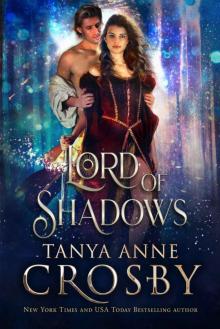 Lord of Shadows (Daughters of Avalon Book 5)
Lord of Shadows (Daughters of Avalon Book 5) To Love a Lord: A Victorian Romance Collection
To Love a Lord: A Victorian Romance Collection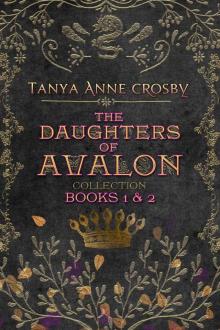 The Daughters of Avalon Collection: Books 1 & 2
The Daughters of Avalon Collection: Books 1 & 2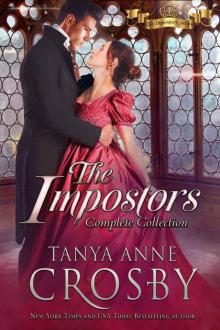 The Impostors: Complete Collection
The Impostors: Complete Collection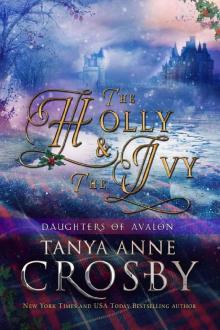 The Holly & the Ivy (Daughters of Avalon Book 2)
The Holly & the Ivy (Daughters of Avalon Book 2)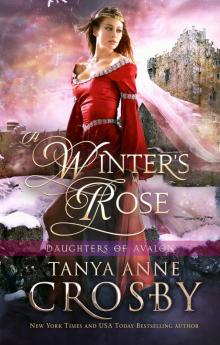 A Winter’s Rose
A Winter’s Rose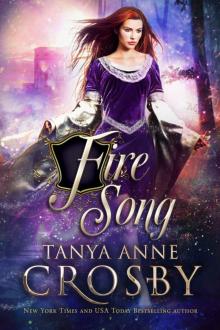 Fire Song (Daughters of Avalon Book 4)
Fire Song (Daughters of Avalon Book 4)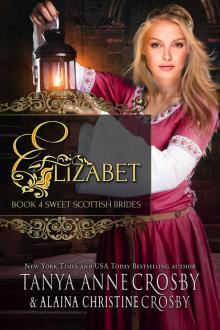 Elizabet
Elizabet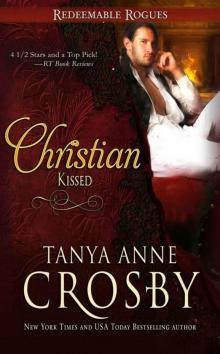 Kissed; Christian
Kissed; Christian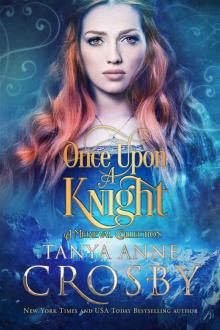 Once Upon a Knight
Once Upon a Knight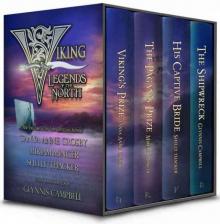 Viking: Legends of the North: A Limited Edition Boxed Set
Viking: Legends of the North: A Limited Edition Boxed Set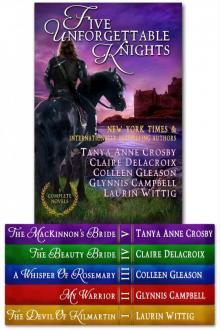 Five Unforgettable Knights (5 Medieval Romance Novels)
Five Unforgettable Knights (5 Medieval Romance Novels)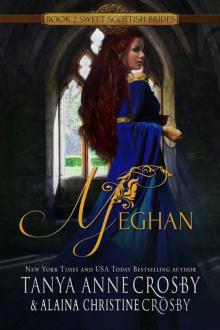 Meghan: A Sweet Scottish Medieval Romance
Meghan: A Sweet Scottish Medieval Romance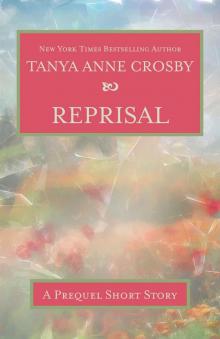 Reprisal: A Prequel Short Story to REDEMPTION SONG
Reprisal: A Prequel Short Story to REDEMPTION SONG Highland Song
Highland Song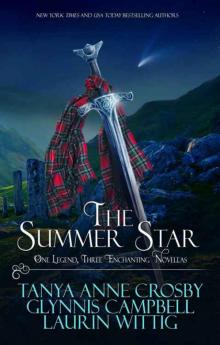 The Summer Star: One Legend, Three Enchanting Novellas (Legends of Scotland Book 2)
The Summer Star: One Legend, Three Enchanting Novellas (Legends of Scotland Book 2) Once Upon a Kiss
Once Upon a Kiss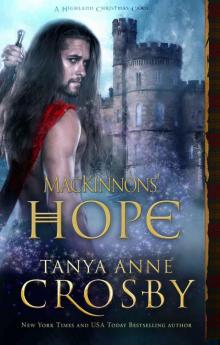 MacKinnons' Hope: A Highland Christmas Carol
MacKinnons' Hope: A Highland Christmas Carol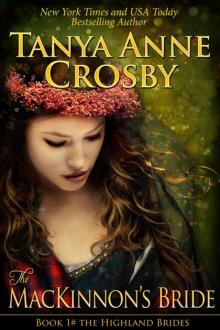 The MacKinnon's Bride
The MacKinnon's Bride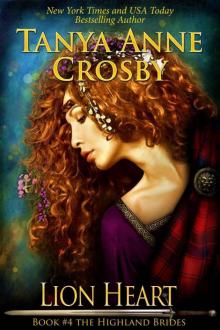 Highland Brides 04 - Lion Heart
Highland Brides 04 - Lion Heart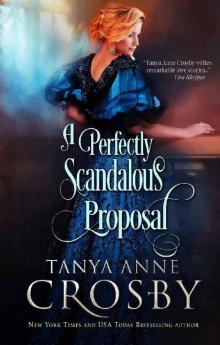 A Perfectly Scandalous Proposal (Redeemable Rogues Book 6)
A Perfectly Scandalous Proposal (Redeemable Rogues Book 6) Reprisal
Reprisal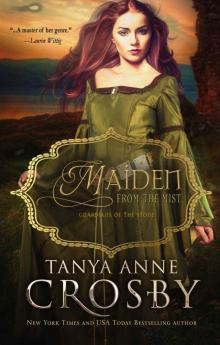 Maiden from the Mist (Guardians of the Stone Book 4)
Maiden from the Mist (Guardians of the Stone Book 4)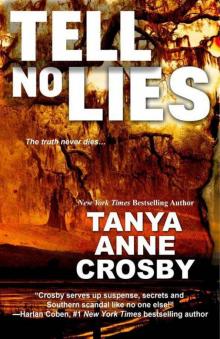 Tell No Lies
Tell No Lies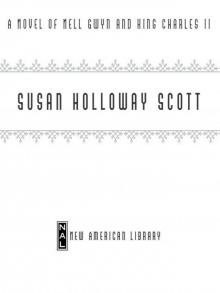 The King's Favorite
The King's Favorite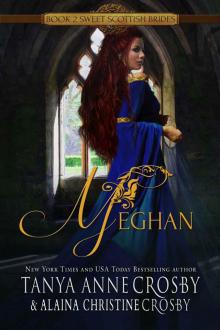 Meghan: A Sweet Scottish Medieval Romance (Sweet Scottish Brides Book 2)
Meghan: A Sweet Scottish Medieval Romance (Sweet Scottish Brides Book 2)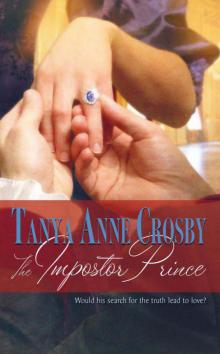 The Impostor Prince
The Impostor Prince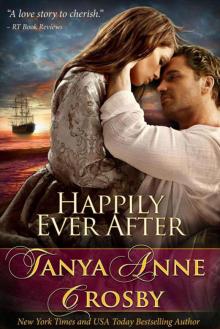 Happily Ever After
Happily Ever After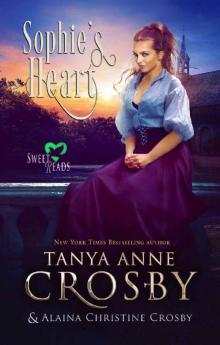 Sophie's Heart: Sweet Historical Romances
Sophie's Heart: Sweet Historical Romances Viking's Prize
Viking's Prize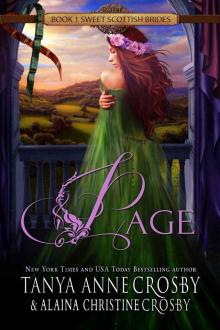 Page
Page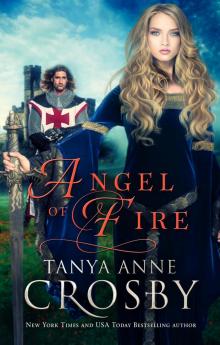 Angel of Fire
Angel of Fire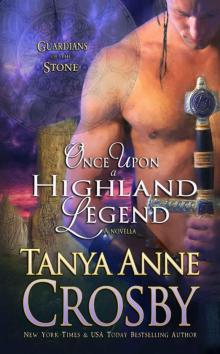 Once Upon A Highland Legend
Once Upon A Highland Legend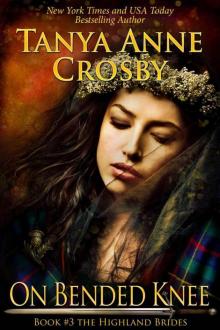 Highland Brides 03 - On Bended Knee
Highland Brides 03 - On Bended Knee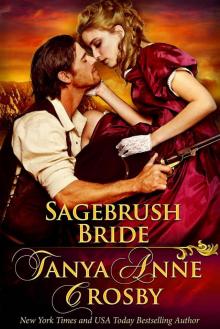 Sagebrush Bride
Sagebrush Bride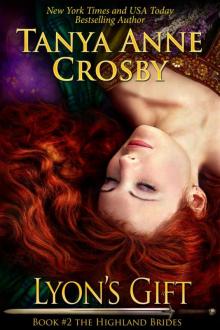 Lyon's Gift
Lyon's Gift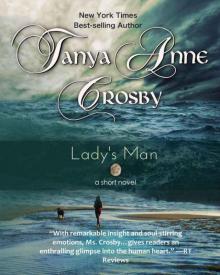 Lady's Man
Lady's Man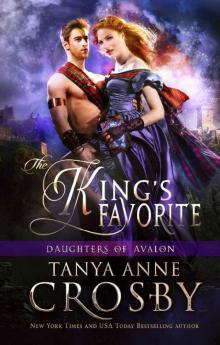 The King's Favorite (Daughters of Avalon Book 1)
The King's Favorite (Daughters of Avalon Book 1)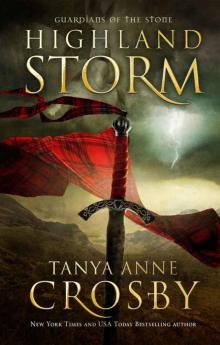 Highland Storm
Highland Storm Redemption Song
Redemption Song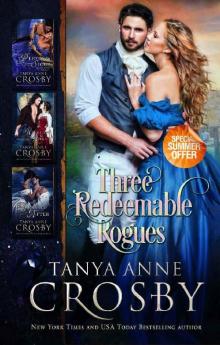 Three Redeemable Rogues
Three Redeemable Rogues